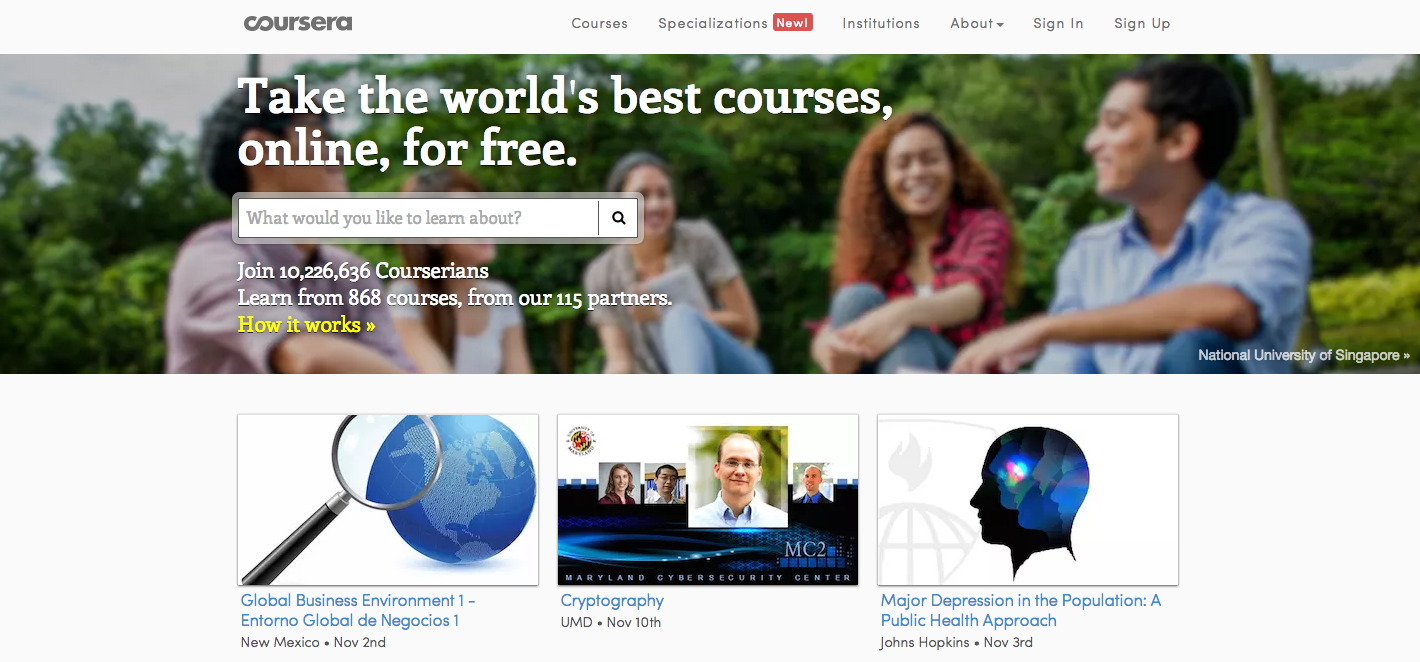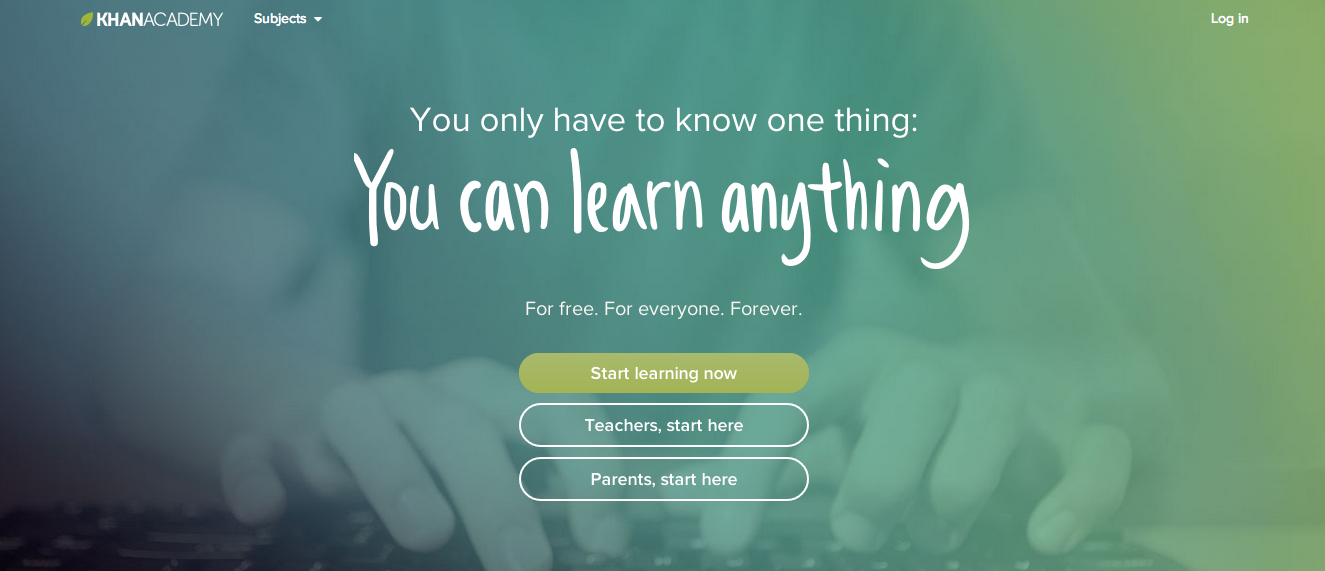The New York Times predicted that 2012 would be the year of the MOOCs. From 2012 until present, these MOOCs (massive open online courses) have popped up all over covering nearly any subject one might want to learn about. MOOCs, by definition, are open. I.e., anyone can join them without going through an admissions process. They are also free. Other online platforms have developed which charge students course fees in exchange to access to courses. Here's a review of five of the most popular platforms where these courses can be found:
Coursera
Coursera is home to 800+ courses with a student population of 10,000,000+ Coursera has teamed up with many traditional and internationally respected universities to provide online courses on many subjects, most of which one could expect to encounter on a college campus. Coursera's U.S. universities include many Ivy League universities including Columbia, Brown, Princeton, and Yale. Major research universities including University of Washington, Johns Hopkins University, and University of Minnesota are home to instructors who are also contributing members. The best part about Coursera's courses is that they are free!
Craftsy
Craftsy's focus is centered around crafting as is evident in its name. Learners pay a small fee. Learners who pay the fee for the class have access to its materials for life. Subject areas that are covered on Craftsy include quilting, photography, gardening, home remodeling, and many other areas. Craftsy's video interface is very engaging. Students can make comments during instructional videos which are attached to the specific place in the video when the comment was made. Others are able to see these comments and instructors' responses which makes for a dynamic learning environment.
Udemy
Udemy claims to have four million students and 20,000+ courses. It has taken the approach of providing a rewarding profit sharing structure with its instructors. This structure acts as an incentive for instructors to curate high-quality content and to market their courses to potential students. Students naturally also benefit from courses that Udemy's instructors have put a lot of time and effort into. Many of Udemy's courses are free, and fee-required courses are typically between $5 and $100 per course.
edX
edX focuses on providing high-quality education provided by instructors from some of the world's top universities including Harvard, MIT, and U.C. Berkeley. Courses are structured similar to university courses by university professors. Students can earn certificates for many of the courses they complete. edX courses are free.
Khan Academy
The Khan Academy provides thousands of free instructional videos on specific skills and techniques that learners are developing. The Khan Academy hosts its videos on YouTube. Its YouTube channel is home to 1.9 million subscribers and more than 475 million YouTube video views. If you're trying to solidify your knowledge on any k-12 school or college subject, chances are, someone has produced an instructional video on it that can be found on the Khan Academy's website.
If you're looking to polish a skill you've been developing or to learn a new skill or subject, taking an online course on the skill or subject may be an excellent method to reach your goals.
Photo credit: "academic pursuit in the shadow of the catalpa" by pcgn7 is liscensed under CC BY 2.0.






